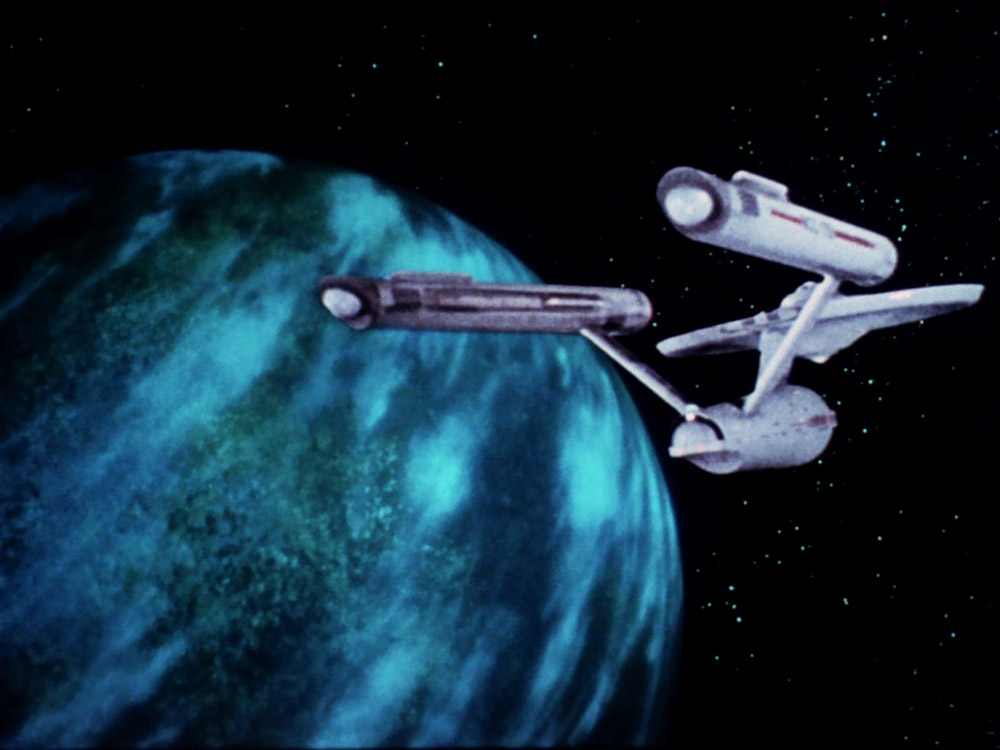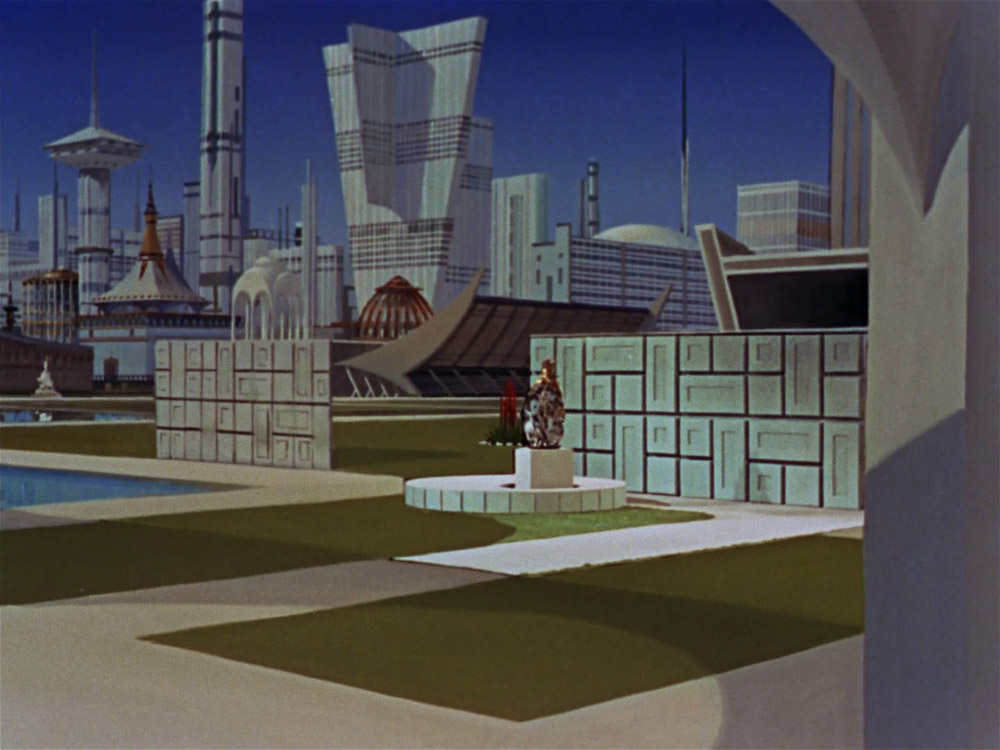Eminiar VII (FASA)
| Astrometrics | Eminiar VII, NGC 321,[1] UFP Quadrant III[2] |
| Coordinates | • -37.0, 222.3, 25.1[3] • 2.15S, 5.77E[2] |
| Class | M[1] |
| Diameter | 13,000km[2] |
| Gravity | 1.22g[2] |
| Hydrosphere | 60%[2] |
| First Appearance | TOS23 (23 Feb 1967) |
| Advertising |
A Class M planet with an advanced civilization, Eminiar VII was at war with its neighbor planet, Vendikar, for more than 500 years. While on a diplomatic mission, the crew of the U.S.S. Enterprise NCC-1701 discovered that the two planets learned to avoid the complete devastation of war by using computers to simulate the outcomes of a real attack. When a "hit" was scored by one of the planets, the people declared "dead" willingly walked into disintegration chambers and were vaporized. The U.S.S. Valiant NCC-1102 was destroyed[1] during its visit in 2153,[4] more than fifty years earlier, and its crew on the surface were all killed. Captain Kirk and Commander Spock, however, managed to destroy the computers. Kirk told the Eminiar VII council members that they made this war too easy for themselves and that they would truly experience the horrors of war if they did not learn to make peace first. Federation ambassador Robert Fox remained on Eminiar VII to broker a peace between Eminiar VII and Vendikar.[1] By 2223, Eminiar VII had joined the Federation and had a population of 5.5 billion.
Notes and References
- ↑ Jump up to: 1.0 1.1 1.2 1.3 Roddenberry, Gene (Executive Producer). "A Taste of Armageddon." Star Trek, Season 1, Episode 23 (Production 23). Directed by Joseph Pevney. Written by Robert Hamner (Story and Teleplay) and Gene L. Coon (Teleplay). Desilu Productions, 23 February 1967.
- ↑ Jump up to: 2.0 2.1 2.2 2.3 2.4 Menke, Bernard Edward and Rick David Stuart (Authors). The Federation. Star Trek: The Role Playing Game. Book 2011. Cover art by David R. Deitrick. Illustrations by Todd F. Marsh, John C. Tylk, Bob Eggleton, Daniel E. Carroll, and Jay Harris. FASA Corporation. 1986.
- ↑ Maynard, Jeff (Author). Star Trek Maps. Star Trek. Book. Bantam Books. August 1980.
- ↑ Goldstein, Stan et al (Authors). Spaceflight Chronology. Star Trek. Book. Wallaby Books. 1980.


